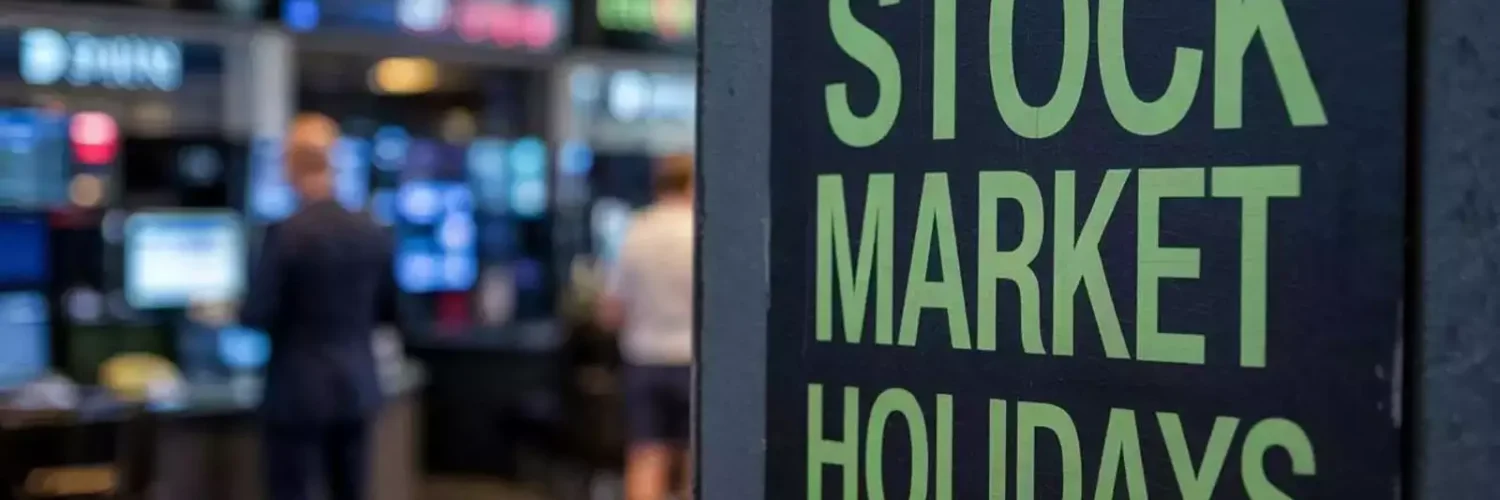
Introduction
The Indian stock markets—BSE (Bombay Stock Exchange) and NSE (National Stock Exchange)—remained closed on April 18, 2025, in observance of Good Friday. While this may appear as a routine annual closure, market holidays can have a subtle yet significant impact on investor behavior, market strategies, and future trends. This case study delves into the significance of this holiday, the pre- and post-holiday trading environment, global cues, and how traders leveraged this break for strategic planning.
Historical Context of Good Friday as a Market Holiday
Good Friday is one of the major religious holidays observed primarily by the Christian community worldwide. Traditionally commemorating the crucifixion of Jesus Christ, the day is marked by solemnity and public observance in many countries, including India.
The Securities and Exchange Board of India (SEBI) and stock exchanges include Good Friday in their annual list of market holidays, ensuring no trading activity in:
- Equity Segment
- Derivatives Segment
- Currency Derivatives
- Securities Lending and Borrowing (SLB)
In the last decade, Good Friday closures have consistently fallen on trading days, creating predictable long-weekend gaps in market activity, which traders often use to reassess strategies.
Market Behavior Leading to the Holiday
The trading sessions preceding April 18, 2025, showed typical pre-holiday patterns:
1. Lower Volatility:
Investors became cautious due to the upcoming break. The Sensex and Nifty 50 traded in narrow ranges, with lower-than-average intraday volatility.
2. Booking Profits:
Retail and institutional investors looked to square off their short-term positions to avoid weekend exposure to global events.
3. Defensive Buying:
There was a noticeable shift toward FMCG, pharma, and IT stocks, indicating a safe-haven approach by risk-averse investors.

Global Market Snapshot on April 18, 2025
While Indian markets were closed, other global markets like:
- NYSE (New York Stock Exchange)
- NASDAQ
- LSE (London Stock Exchange)
remained open, leading to potential global price movements that could affect the Indian market post-holiday.
Any major geopolitical or economic news on this day would not be absorbed in real-time by Indian markets, creating an element of uncertainty and anticipation.
Post-Holiday Market Reaction (April 21, 2025)
When the markets reopened on Monday, April 21, they displayed a mix of catch-up and cautious sentiment. Here’s how various sectors performed:
1. IT Sector:
Driven by global tech performance and U.S. earnings announcements over the weekend, Indian IT stocks saw an uptick. Companies like Infosys, TCS, and Wipro gained momentum.
2. Banking & Finance:
The sector opened flat but picked up during the second half as reports from RBI and international financial updates came into play.
3. Energy Sector:
Crude oil price fluctuations globally over the weekend influenced stocks like ONGC and Reliance Industries.
Investor and Trader Perspectives
Retail Investors:
Used the holiday for research and planning. Many shifted toward Systematic Investment Plans (SIPs) and mutual funds to reduce risk during volatile times.
Intraday Traders:
Experienced a temporary pause but used the break to recalibrate their strategies based on technical indicators and global patterns.
Institutional Investors:
Considered international movements to realign positions. Some hedge funds made pre-holiday adjustments to balance global portfolios.
Strategic Insights from the Holiday Pause
1. Reflection Time:
Market closures allow time for strategic thinking, long-term planning, and sectoral research.
2. Volatility Cushion:
A holiday helps dampen short-term market reactions. Traders can process news without emotional decisions driven by live price movements.
3. Opportunity Windows:
When international markets remain open during local holidays, it presents a unique opportunity for arbitrage and strategy-based investing when markets reopen.

Conclusion
While April 18, 2025, was marked by silence on the trading floors, its strategic implications were far from quiet. This seemingly ordinary holiday allowed for a reset—a breathing space in the otherwise relentless pace of stock trading.
For informed investors, such market pauses are golden windows to analyze, rebalance, and return with a fresh perspective. The share market holiday on Good Friday was not just a day off, but a moment of strategic silence—where patience, planning, and preparation took center stage.







Add comment